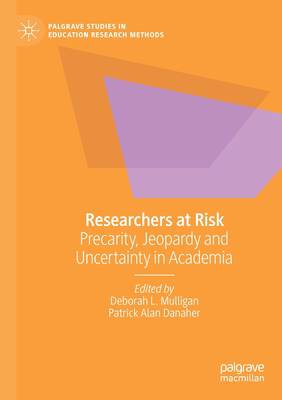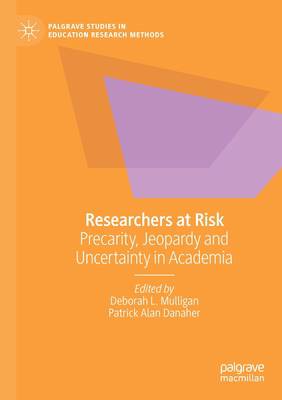
- Afhalen na 1 uur in een winkel met voorraad
- Gratis thuislevering in België vanaf € 30
- Ruim aanbod met 7 miljoen producten
- Afhalen na 1 uur in een winkel met voorraad
- Gratis thuislevering in België vanaf € 30
- Ruim aanbod met 7 miljoen producten
Zoeken
Researchers at Risk
Precarity, Jeopardy and Uncertainty in Academia
€ 149,95
+ 299 punten
Omschrijving
This book explores the phenomenon of researchers at risk: that is, the experiences of scholars whose research topics require them to engage with diverse kind of dangers, uncertainties or vulnerabilities. This risk may derive from working with variously marginalised individuals or groups, or from being members of such groups themselves. At other times, the risk relates to particular economic or environmental conditions, or political forces influencing the specific research fields in which they operate. This book argues for the need to reconceptualise - and thereby to reimagine - the phenomenon of researchers' risks, particularly when those risks are perceived to affect, and even to threaten the researchers. Drawing on a diverse and global range case studies including Aotearoa New Zealand, Australia, Balūchistān, Cyprus, and Germany, the chapters call for the need to identify effective strategies for engaging proactively with these risks to address precarity, jeopardy and uncertainty.
Specificaties
Betrokkenen
- Uitgeverij:
Inhoud
- Aantal bladzijden:
- 348
- Taal:
- Engels
- Reeks:
Eigenschappen
- Productcode (EAN):
- 9783030538590
- Verschijningsdatum:
- 6/01/2022
- Uitvoering:
- Paperback
- Formaat:
- Trade paperback (VS)
- Afmetingen:
- 148 mm x 210 mm
- Gewicht:
- 449 g

Alleen bij Standaard Boekhandel
+ 299 punten op je klantenkaart van Standaard Boekhandel
Beoordelingen
We publiceren alleen reviews die voldoen aan de voorwaarden voor reviews. Bekijk onze voorwaarden voor reviews.






